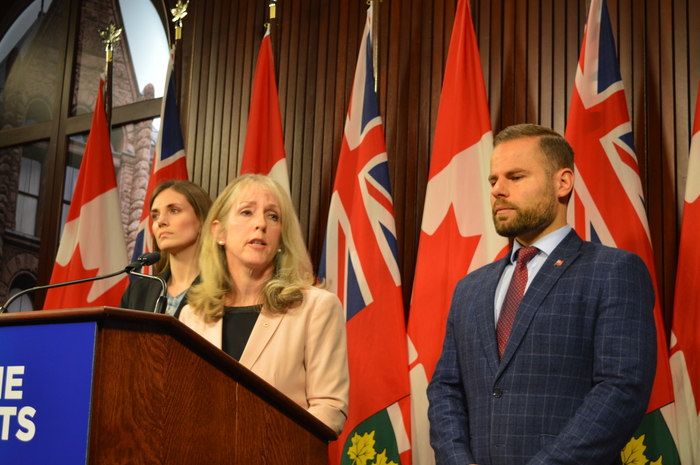608 George Brown College students report non-consensual sexual experiences
A total of 608 students at George Brown College (GBC) reported having at least one non-consensual sexual experience according to a 2018 sexual violence survey at Ontario post-secondary institutions.
Additionally, 1,755 students said they have experienced some form of sexual harassment.
Merrilee Fullerton, Minister of Training, Colleges and Universities, announced the results of the survey of 160,000 post-secondary student participants on March 19.
“It’s deeply disturbing to see just how pervasive sexual harassment and violence is for students attending Ontario’s universities,” said Gyllian Phillips, president of the Ontario Confederation of University Faculty Associations.
Of the 545 respondents who said they told GBC staff, faculty, or any college service office that they had experienced some form of sexual violence, 55 per cent said they were satisfied with the response they received, while 28 per cent said they were dissatisfied.
Only 27 per cent of GBC students who responded said they have adequate knowledge of sexual violence supports, services and reporting procedures at the college.
“Any instance of sexual violence on our campuses is one too many,” said Linda Franklin, the president and CEO of Colleges Ontario. “It’s essential that we promote campuses that are free from sexual violence.”
Over 66 per cent of GBC students who responded to the survey marked that they witnessed sexual violence and intervened. This includes informing college staff, directly confronting the situation or taking measures to prevent potential incidents.
The government also announced an increase in funding to the Women’s Campus Safety Grant from $3 million to $6 million.
“Promoting safe campuses is a top priority at our colleges,” said Franklin. “This additional support will enhance our education and training programs and improve the support for survivors of sexual violence.”
Suze Morrison, the NDP women’s issues critic, expressed skepticism of the government’s decision after the announcement.
“While they got a little bit of money over here that they’re putting in one pot, on the other hand, they’ve cut $33 million to rape crisis centres across the province and are under-funding the vital services that survivors actually need,” she said.
Caitlin Salvino, the advocacy lead of the Students for Consent Culture Canada, said the increased grant is important but that it does not make up for the rape crisis centre funding cuts.
“I went to a campus that received the grant. It did not support us, as we were doing advocacy on the ground and seeking to transform the work that was being done on our campus,” said Salvino. “It was a really short-sighted response to the issue.”
Salvino mentioned that victims tend to turn to off-campus support because in many cases, the person who harmed them goes to the same campus.
“It really contributes to barriers for women and others who experience sexual violence from accessing post-secondary education. Because without the proper support that they need, a lot of them drop out of school.”
In addition to the grant the government is mandating the formation of task forces at colleges and universities dedicated to reducing sexual violence.
“Rape crisis centres are always busy. Their crisis lines are full. And their counselling; they’re quite inundated and always have been,” said Mandy Bonisteel, community services and health sciences professor at GBC. “It’s difficult to get funded enough to do the work.”
Bonisteel was on an advisory committee that developed an online tool to help staff at universities and colleges better respond to disclosures of sexual violence.
Students can speak with a sexual violence response advisor at GBC if they are unsure of how to deal with experiences of sexual assault or harassment. They can be contacted at (416) 415-5000 ext. 3450 or diversity@georgebrown.ca.



